One of the most challenging things about running a small business is controlling your finances. Hiring people to keep your books and file your taxes is one thing. It is quite another to develop creative yet financially sound strategies for growing and scaling your organization while also running your company. Ideally, that would be a job for your CFO (Chief Financial Officer), but CFOs are pricey, so what is an outsourced CFO?
What is an Outsourced CFO?
An outsourced CFO (a.k.a. fractional CFO) is a part-time member of your executive team who examines your business through a financial lens and provides the strategic insight you need to make decisions. This person is an experienced leader and trusted advisor who can perform all the same functions as a full-time CFO at a fraction of the cost.
It can help to know that an outsourced CFO is not the same as an interim CFO. An interim CFO is a temporary hire who fills in for someone on leave or bridges the gap while you look for a permanent replacement. That is different from an outsourced CFO who becomes an integral part of your team and could potentially work with your company for years.
What Do Outsourced CFOs Do?
Outsourced or fractional CFOs are financial experts who can manage a wide range of activities, so their day-to-day priorities will depend on your needs. For instance, CFOs typically assume responsibility for a company’s administrative, financial, and risk-management operations. Therefore, they might oversee your entire accounting and finance department and manage your human resources team while also handling special projects. Let’s break it down to give you a better sense of their daily tasks.
Financial Strategy
A good CFO always takes a long-term view, developing plans that will serve you 3-5 years into the future. So first, they analyze your company’s financial situation and work with your executive team to establish challenging yet attainable goals and a system for measuring progress. Then, they check in each month to look at how the company is doing compared to its targets so they can help you make strategic decisions about hiring, pricing, and investments to ensure that you stay on track.
Financial Infrastructure Development
Besides financial planning, a CFO can help you build the financial infrastructure you need to grow and scale. That means they could engage in any number of activities that keep your organization running smoothly, such as:
- Developing sensible hiring plans.
- Selecting and implementing technology.
- Building effective policies and procedures.
- Creating a solid and repeatable financial budgeting and forecasting process.
- Establishing systems for tracking your key performance indicators (KPIs) and managing cash flows.
Team Leadership

As the senior finance and accounting team member, your CFO is ultimately responsible for your financial reporting and analysis functions. Therefore, they hire, train, and lead the staff you need to get it all done. Over time, this could include a myriad of functions.
Initially, however, they will manage your company’s accounting team and do much of the financial analysis themself to translate that data into meaningful insights. They will also be the primary point of contact for external financial partners, like your tax advisor, bankers, and investors.
Special Projects
Many business owners hire outsourced CFOs to solve one-off financial problems or to manage special projects when they lack in-house expertise or want a fresh perspective. For example, you might periodically ask an outsourced CFO to review your financials and weigh in on your short and long-term growth strategies. Other projects that required specialized knowledge include:
- Raising capital.
- Mergers and acquisitions.
- Accounting system overhauls.
- External audits.
- Identifying and addressing complex cash flow or operational issues.
- Restructuring and corporate bankruptcies.
What are the Benefits and Downsides of Outsourcing CFO Services?
As with all business decisions, exploring the pluses and minuses of this approach to hiring is important. After all, this person will become a key member of your executive staff and intimately familiar with the inner workings of your business, so it is imperative to be discerning. Here are the main perks and drawbacks from my vantage to combine with your own:
Human Resource Infrastructure 360°™
Don’t let costly human resource issues creep up on you. Learn about the 5 components of HR Infrastructure 360°™ - our proprietary framework for building and supporting your team.
- Executive Level Expertise for a Fraction of the Cost
CFOs are highly experienced professionals. So, if you hire a full-time, in-house CFO, that person would come at a premium. However, for many small to mid-sized companies, that would be overkill. When this is the case, an outsourced CFO is a perfect solution – you get the skills you need, when you need them, without the hefty price tag. - Specialized Experience for One-off Projects
Some financial issues are incredibly tricky and best tackled by someone with the skills and experience to lead your team through the process. For example, mergers and acquisitions are complex business endeavors that involve coordinating with a group of experts and navigating the expectations of company stakeholders. Bringing in an outsider to manage such projects may be a necessity. - A Fresh Perspective
People who provide outsourced CFO services are highly motivated to keep up with best practices because this will enable them to continue bringing on new clients. Furthermore, since they experience a broad mix of people, organizations, and systems, they are more likely to expose your team to new ways of doing things.
Of course, there are downsides to working with an outsourced CFO too. For example:
- A Potential Lack of Long-Term Investment
Unless you negotiate an equity arrangement, an outsourced CFO’s motivation may conflict with others on your executive team. However, most outsourced CFOs rely on the strength of their reputation to continue earning business. Therefore, they develop pricing structures that ensure they are well compensated and take pride in delivering unbiased advice. - The Lack of an Internal Team
When you put off hiring a full-time CFO, some might argue that you also delay the opportunity to build a cohesive, in-house team with a strong history. However, if you choose a great outsourced CFO, they will be with your team for some time. Just look for someone who sees it as their mission to help your company grow and scale and will happily assist you in finding their replacement when it is time to move on.
When Should You Hire an Outsourced CFO?

Most companies hire a part-time bookkeeper and tax accountant quickly. But, once you encounter higher-level financial challenges, it might be time to add an outsourced CFO, especially if a full-time hire is either cost-prohibitive or unnecessary. For example, here are some signs that you are ready for financial leadership.
- You cannot make financial decisions with confidence.
- A capital raise is necessary to fund your growth plans.
- Your business generates a lot of data, and you need someone who can turn that data into actionable insights.
- Cash flow has become a problem, and you don’t know what to do about it.
- The barrage of questions from your accounting staff is overwhelming.
- You need executive-level financial reports to share with your board.
How Much Does CFO Outsourcing Cost?
Small companies (~$10MM in revenues) can expect to spend about $300,000 to $400,000 annually for a full-time CFO (including bonuses, benefits, overhead, and taxes). These numbers can vary, of course, depending on the industry, company size, location, and the CFO’s experience.
In contrast, outsourced CFOs typically charge by the hour or day, with hourly rates upwards of $350/hour. So, the total cost will depend on how much support you need. Check out our full-time vs. fractional CFO calculator to explore the potential savings.
How to Hire an Outsourced CFO
Hiring an outsourced CFO is like hiring any other type of executive. First, develop a job description highlighting the skills and traits you would expect to see in a qualified candidate, then post the position on LinkedIn and reach out to your networking organizations. Then develop a great list of CFO interview questions to help you gain deeper insight into each candidate’s experience.
Ultimately, finding someone you can trust is the most critical thing. This person will be an essential advisor to your entire executive team, the financial voice of your company, and will have the authority to make decisions, so they must be a great fit. And bonus points to anyone who has built a company of their own, as they will understand the daily challenges and stressors your CEO faces.
At The CEO’s Right Hand, our outsourced CFOs have decades of experience across many industries. Reach out today to discover what we can do for you.




